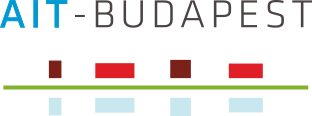AIT staff makes every effort to ensure the well-being of its students.
- Medical Information Form
Each student has to complete a medical information form before arrival. AIT assesses students’ possible medical or mental conditions and treatment and asks for emergency contacts. This way the same attention and treatment that students receive back at home can be provided for them during their stay in Budapest. - Classroom accommodations
For students receiving any classroom accommodations at their home institutes, AIT endeavors to provide the same accommodations whenever possible. - Emergency hotline
Each student will receive a survival guide upon arrival which contains useful information including staff contact info and emergency hotline numbers. AIT staff provides 24/7 availability for students. May anything happen to them during their stay, there will always be someone to reach out to. - Orientation
Students are required to attend the orientation days at the beginning of the semester where all important information about healthcare protocol and emergencies is shared. - Special attention to each student
AIT staff puts an emphasis on following class attendance of students. In case of absence, both the staff and professors must be notified by the student. In case of sickness, hybrid education is provided. Those being in self-isolation are always able to join classes online, via Zoom. As the AIT community is pretty small, the staff is able to give meaningful attention to each and every student, notice if anyone has special needs or going through a rough period, and is always there to help. - Mental health
AIT has an on-sight psychologist who is providing professional assistance for students free of charge. Psychiatric treatment is provided by Swiss Clinic and is covered in AIT’s health care plan. AIT suggests that those taking medications regularly have enough amount with them for the entire duration of their stay. If it is not possible AIT will help to connect the student’s physician with a local doctor to discuss what similar medication to prescribe in Hungary.
AIT health care plan
AIT has partnered with a private healthcare service provider called Swiss Clinic and developed a plan specifically for the needs of international students speaking English and staying in Hungary for one semester. This plan provides access to Swiss' 24/7 English-speaking emergency assistance and response service and includes 12 non-emergency doctor appointments throughout the semester at Swiss private clinics in different locations across Budapest. The AIT health care plan is included in the AIT tuition from the 2022 Fall semester. All students are automatically enrolled in the AIT health care plan from the moment they arrive in Hungary.
Insurance in Hungary
Beyond the AIT health care plan it is mandatory for all students to have medical insurance for two reasons:
- to cover such treatments that are not included in the AIT health care plan (emergency medical care, surgeries, hospitalization, etc.)
- and to fulfill the Hungarian immigration authority requirements.
The Hungarian immigration authority requires students to hold medical insurance that meets the "Schengen visa requirements".
Every student should check with their insurance company - or study abroad office if the insurance is sponsored by their school - about whether their current insurance policy meets the Schengen visa requirements.
These requirements are:
- A minimum coverage of at least 30,000 EUR (approximately 35,290 USD)
- Covers all member states of the Schengen Area
- Covers any expenses which might arise in connection with repatriation for medical reasons, urgent health attention, and/or emergency hospital treatment or death, including repatriation of remains
Students will be asked to complete an Insurance Attestation Form provided by AIT. This form should be signed and returned to their student services representative in Budapest, which will attest to their sufficient insurance. Students will also need to obtain a short letter from their insurance company explaining the details of their coverage, which can be presented at the Consulate when applying for a visa, or to the Hungarian immigration authority upon arrival.


